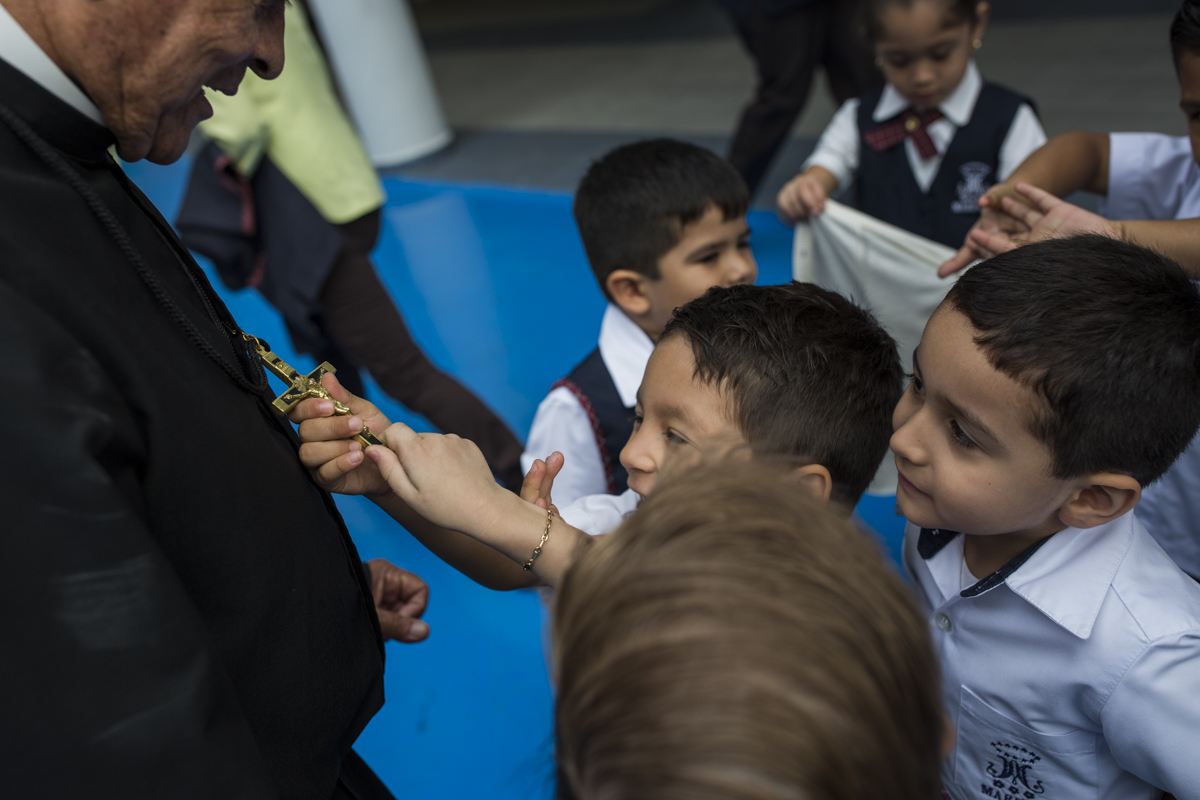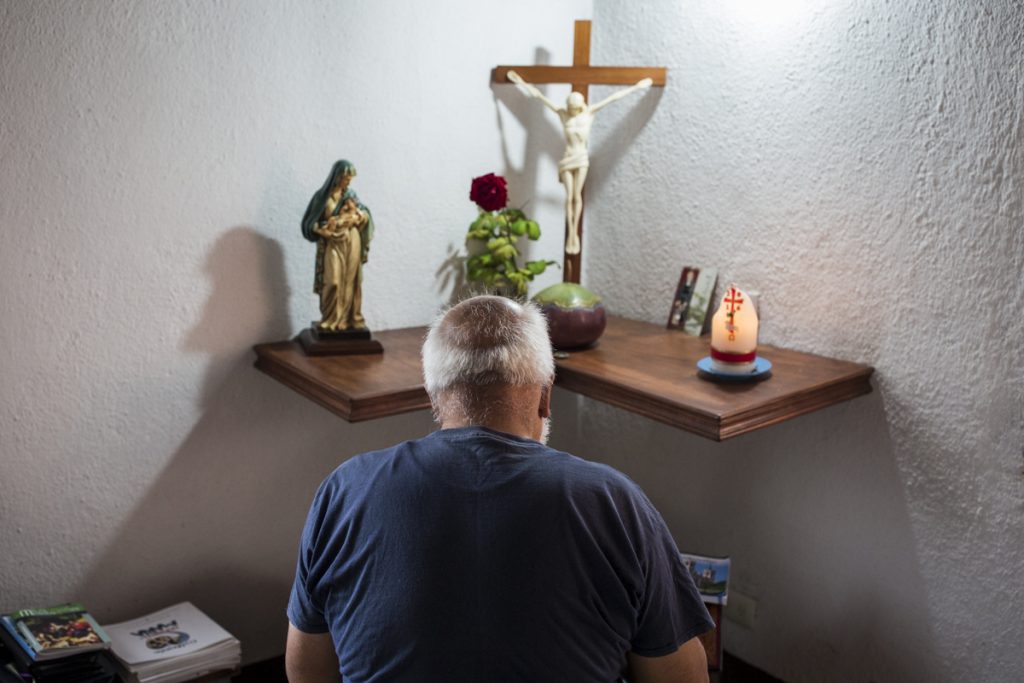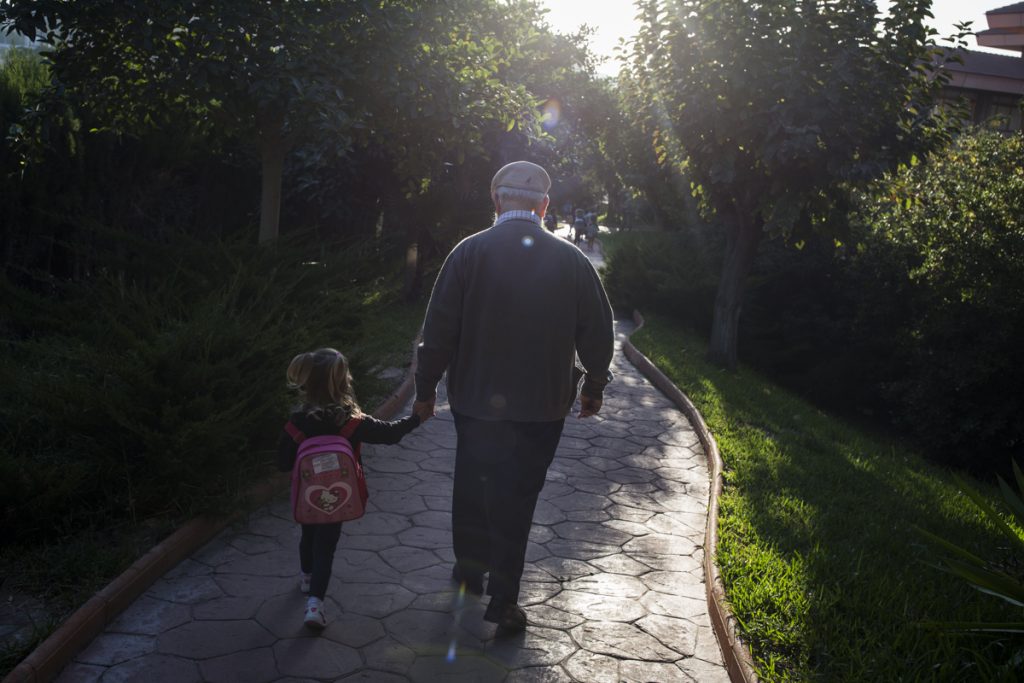
Brothers: Growing in Age, Grace, and Wisdom
Brother Ben Consigli, Councilor General
At a past Conference of Major Superiors of Men in the United States, Father Myles Sheehan, a former Jesuit provincial and medical doctor, shared his insights about religious men aging with vitality and purpose, and he shared some lessons in the art of living well as we age. Let’s face it; even the younger members of the congregation are getting older! In reflecting on his presentation, I thought that most of what he said would resonate with any Brother, regardless of his age. I share with you some of his most salient “lessons.”
Sustain an active prayer life
Prayer leads us to seek the will of God in our lives and to seek out how best to fulfill that will. We pray for others, we pray to worship God, to praise Him, and to listen, and to thank Him for the many gifts we have received in our lives. Over time, our spirituality changes; what was prayerful or helpful when we were younger may no longer satisfy us now. As we age, we can continue to learn to pray, to build an awareness of the presence of God in our lives, and this can lead to a better understanding of ourselves and our God. An annual retreat, spiritual direction and spiritual reading may enhance these understandings. When we pray, we are better able to practice patience within our communities, withhold judgment, and be more generous—some of the very qualities that Saint Marcellin asked us to hold dear. It is never too late to become aware of God’s gifts or to respond to them. Making time for personal prayer—whether it’s for fifteen minutes or one hour per day— gives us the opportunity to do just that. Do I make time for God in my life?
Recognize that all we have is “gift” from God
When I was Provincial, I encouraged the Brothers to recognize that all we have, including such things that have become the “givens” of our daily lives (homes, medical care, the access to cars and travel, finances, independence, etc.), is really “gift” and that we are not really “entitled” to anything. Unfortunately, we sometimes act as if we are entitled to everything! In our process of aging, there will often be the need to let go of some of these things that we may have taken for granted. That can be very painful. A spirituality of aging asks that we continue to see our lives as a gift, and it challenges us not to see ourselves as entitled to what God, or our Brothers, have given us (or what we may want them to give us!). It is a call to be generous with our “time, treasure, and talents.” We might want to ask ourselves if we are growing more generous as we age, or are we seeing ourselves entitled to the many things we want or need. I think each of us can remember some of senior Brothers who continued all their lives to be generous men—what a blessing that is for each of us. I offer some questions to ponder: Do I accept the fact that my legitimate human needs are secondary to the overall goals and needs of the community and its mission? Is that fact evident in the way that I live and pray and share my life?

Keep a sense of humor
In his Circular, Homes of Light, Brother Ernesto Sanchez reminds us that “our family spirit is one of the strengths of the Institute…This spirit is not bound by languages or cultures and it is a real treasure to feel welcomed in a family setting: the personal attention; an atmosphere of trust; time shared generously; sense of humor … This spirit helps us build homes of light where we care for the lives of one another.”
In Marvelous Companions, Brother Seán Sammon speaks of humor as a key ingredient to a solid communal and personal life. “A sense of humor among us is necessary to bring life to our communities. Some of us take ourselves too seriously; we lack an ability to laugh at ourselves. How do we expect to get through life’s difficulties or bumps in the road?” Humor helps us to re-image the meaning of some events that have taken place in our lives and lessens the effect of frustrations and reversals that are part of everyone’s day to day existence. Seán goes on to say, that “…our way of life is meant to make people happy—not in the sense of hilarity, but in the deep feeling of contentment experienced by people who have meaning and purpose in their life.” Marcellin considered cheerfulness and optimism a mark of a religious vocation. “One who is cheerful and contented,” he claimed, “demonstrates simply by his disposition that he loves his state in life and he is happy in it.” I can think of no better vocational advertisement for religious life.
Serve in ways that bring you joy and support the mission and the community
As apostolic religious, we are called to a life of service. This does not end when we are no longer in active ministry. As Christians, we are invited to enter into the Paschal Mystery and to live out the dying and rising of Jesus in our everyday lives, in whatever position or circumstance we find ourselves. Eventually, our energy levels and our physical abilities may wane, but we must continue to be present to the young people in our midst in different ways which address our present realities. Brother Ernesto reminds us that “perhaps our best service would be to simply help them (children and young people) seek and find ‘meaning’” in their lives.
Our “being present” in our Marist communities is also another way we can be of service to each other. Brother Ernesto states that in our communities “we are privileged to have older brothers, men of considerable experience and faithful commitment. How can we take better care of them and profit from their wisdom and experience? By looking after each one, showing our respect and appreciation for who they are… By offering them our time and the quality of our presence.”
This “ministry of presence” is an enormous gift we can offer to each other and to the young we encounter.
Seek forgiveness and reconciliation
Forgiveness involves a choice and a decision. Holding on to anger can paralyze us, can eat away at us, and can control our very lives. As Seán points out in Marvelous Companions, “forgiveness entails a process where we choose not to let the hurt we have suffered get in the way of continuing our relationship and decide to respond to whoever has hurt us rather than hold on to the pain.”
Our Rule of Life tells us that, “Having experienced God’s unconditional forgiveness, we learn to forgive each other “seventy times seven” (Mt 18:22). Actually, we must learn to forgive one another as many times as is necessary. Likewise, we help each other when we give and receive fraternal advice. In this way, we avoid criticising others or speaking behind their backs. For fraternal advice to be helpful, however, you must carefully choose your time to speak and do so in a manner that is sensitive.” (ROL #49)
There are few situations of hurt in life where only one party is to blame. We must also admit that we too contributed to the hurt. We should take some time to reflect on the past hurts in our lives and also reflect on those hurts we have caused others. Are there past events in your/my life that need healing or a relationship that calls for mending? Are there steps that can be taken to set the process of forgiveness and reconciliation in motion?
Have regular medical check-ups
We should all go see our doctors at least once a year to get our yearly exam, unless we have illnesses that require more frequent visits. This will help our doctor keep watch over our health. There are a million reasons to see our doctor regularly; one of the reasons not often discussed concerns one’s health and the effect on the community. We need to realize that our health (or lack of it) has an impact on our communities. Everyone should take an active approach to his health. By deciding how we want to live these years in relation to the community and taking charge of our health and well-being, we can make positive changes that benefit ourselves and those with whom we live. We each can follow a few simple rules or lessons: keep our minds active, our bodies fit and our relationships with God and others healthy.
Growing Older—an Art!
We know that the onset of aging can be so gradual that we are often surprised to find that one day it is fully upon us. The changes to the senses, appearance, reflexes, and physical endurance are undeniable–and rarely welcome–and yet, getting older can have surprising blessings. Age concentrates not only the mind, but the body’s energies, which may lead to new sources of creativity, perception, and spiritual intensity. Growing older can teach us all valuable lessons. Growing older is not a disease but an art–and for those who practice it well, it can bring extraordinary rewards.
_____________
Brother Ben Consigli, Councilor General – November 2020

Photos: Conor Ashleigh
